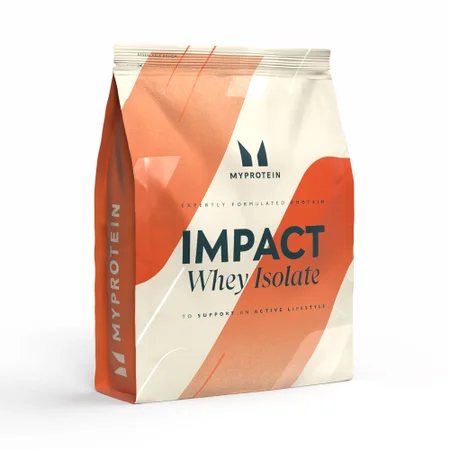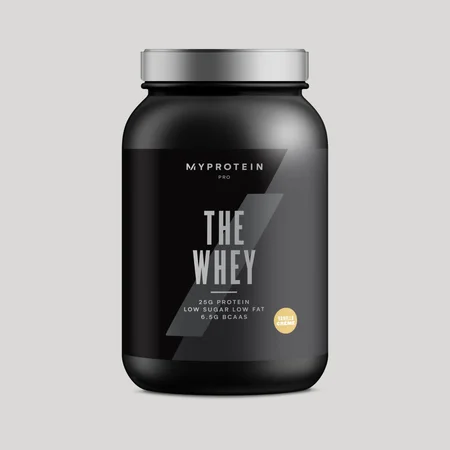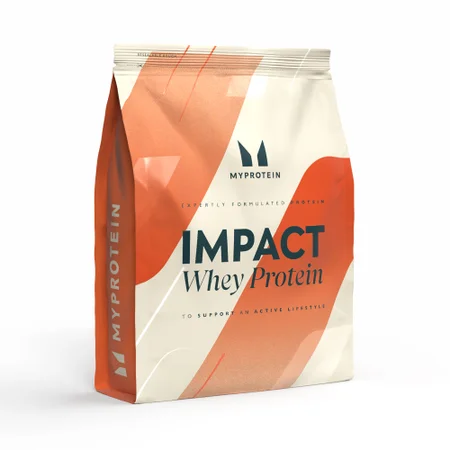What Is Whey Protein? | Benefits, Side Effects & Dosage

In this article, you'll find:
What is whey protein?
The difference between whey concentrate, isolate, and hydrolysate
The benefits of whey protein
Whey protein dosage and side effects
What is Whey Protein?
Whey protein is key to building muscle and recovering after a workout, and can also help you lose weight. Based on your goals, whey can help you optimize the results from the hard work you put in at the gym. It has many benefits, especially when used at the right time and dosage.
It's also one of the most commonly used nutrition supplements for muscle repair and building and is considered a complete protein, which means it contains all nine essential amino acids.
Its widespread use is supported by research showing a strong amino acid profile and fast, easy digestion and absorption by the body.1 The benefits of whey protein, with its advantages over other forms of protein and very limited potential side effects, make it one of the most popular dietary supplements.
Whey protein is one of the major components of milk and is derived from the liquid that separates from the curds during the process of making cheese. This natural by-product of cheese production accounts for about 20% of the protein in cow’s milk and means that it's a pretty safe source of protein. Also, whey remains low in lactose content, making it easily digestible and suitable even for those with degrees of lactose intolerance.2
Whey protein comes in many different flavours and can be mixed with milk and water, or blended with fruit and nut butters. They're a convenient way to get in the protein you need on the go, whether it's after the gym, or mixed through your oats for a delicious, balanced breakfast. It's ideal for helping you to conveniently build and maintain muscle.

What's The Difference Between Whey Concentrate, Isolate, and Hydrolysate?
Whey protein is available in three different forms that are produced from various types and levels of processing, and have a few different benefits based on your goals.
What is whey concentrate?
Whey concentrate is what remains after the whey is neutralized and continuously filtered. Concentrate typically contains the lowest percentage of protein compared to isolate and hydrolysate, since it undergoes the least amount of processing to produce the end product.
The benefit of whey protein in this form is usually the cost versus those with greater processing. A high-quality whey concentrate supplement should contain 75% protein per serving.2 Our Impact Whey Protein contains more than 80% per serving, with 19g for only 100 calories. Often, whey concentrate is the most acceptable in flavour as well.
What is whey isolate?
Whey isolate contains up to 95% of protein per serving. It’s produced when whey concentrate is further purified using processing techniques that remove more of the water, fat, and lactose content. For this reason, whey protein isolate is purer, containing fewer calories and carbohydrates than whey concentrate.
The body’s rate of absorption is typically about the same between concentrate and isolate, however, isolate may be the best choice if you want the highest amount of protein per serving.2 Our Impact Whey Isolate contains 20g of protein for only 90 calories.
What is whey hydrolysate?
Whey hydrolysate has been further broken down into smaller peptides that are more rapidly absorbed into the bloodstream. These peptides, or protein chains, are considered to be “pre-digested” with enzymes or broken down with heat or acids. Research has shown the following benefits of whey protein hydrolysate: greater increase in muscle protein synthesis (your ability to build muscle) with post-exercise whey hydrolysate than with free amino acids,3 and greater stores of muscle glycogen (used in our bodies for energy) post-exercise.4
Hydrolysed Whey Protein contains 24 grams in 110 calories. Although this increased rate of synthesis is the primary benefit of this form of whey protein, the other forms are still very effective at protein synthesis and muscle glycogen uptake (even if at slightly different rates).
So, all forms of whey protein are efficiently and effectively used by the body, choosing which type of whey to purchase more a personal preference than a question of benefits. While some are more refined or broken down into smaller molecules (isolate and hydrolysate), all forms of whey protein benefit performance and recovery. Whey concentrate may also contain other beneficial milk-derived nutrients that are lost in the further processing steps of isolate and hydrolysate.

What are the Benefits of Whey Protein?
1. Protein is key for muscle growth and maintenance
The body needs protein for many daily functions, like immune responses, transport, signalling pathways, and cell structure.5 Protein is also the key factor in muscle growth and retention. Because whey protein is rich in leucine (a key anabolic, or building, amino acid), it benefits those trying to build lean mass and decrease body fat.6 Since exercise causes both protein breakdown and protein growth, adequate amounts of protein need to be consumed to result in a positive net balance of protein after exercise.
2. Whey protein is convenient
The most obvious benefit is that it is a convenient, and quick option to replenish lost protein stores due to its ease of transport and use on the go. The powder does not need to be refrigerated and is easy to measure and mix simply with water or add to a smoothie, yoghurt, oatmeal, or other liquid. There are even ways to add whey protein powder into baked goods and other recipes for an extra boost of protein.
3. Can reduce muscle fatigue
For healthy and active individuals and athletes, whey protein benefits their performance as well as their ability to build and maintain lean muscle mass. After exercise, consuming whey protein helps to increase muscle protein synthesis and glucose uptake for glycogen synthesis in the muscles.7 Glycogen is the muscles’ form of energy storage. Whey protein benefits the muscles by ensuring adequate glycogen stores for them to perform better and not fatigue as quickly.
4. May keep you feeling fuller for longer compared to other snacks
Additionally, protein slows down the process of digestion, which increases satiety. When a carbohydrate source is paired with protein, it keeps you feeling fuller for longer.
This feeling of fullness and can limit overeating and help long term with weight loss.8 Whey protein was shown to be even more beneficial than casein proteins for satiety in overweight and obese individuals.9 When trying to lose weight, whey is a great option for increasing protein intake while keeping calories low thanks to its low fat and carbohydrate content. Adequate protein intake is important for preserving lean tissue while trying to lose weight and is also beneficial during the aging process to preserve muscle mass.10

What are the Side Effects of Whey Protein?
Adequate protein intake for a healthy adult is 0.8g per kilogram of body weight.11 For example, 0.8g x 80kg bodyweight = 64g protein per day. However, this calculation doesn’t account for any medical conditions or level of exercise. Healthy individuals with normal kidney function can tolerate daily supplementation of whey protein with no documented side effects..12 Whilst there is some debate about potential negatives from protein supplementation, no significant evidence is available.12
Whey protein benefits athletes for both strength training (resistance, weight lifting) and endurance training (cardiovascular based activities like running, swimming, and biking), through muscular growth and energy storage.6
How much whey protein should you take?
When the goal is to build and maintain muscle mass through a positive balance of protein. With an overall intake in the range of 1.4 – 2.0 g/kg body weight has been shown to be sufficient in those who regularly exercise.6 The lower end of this range may apply more to endurance athletes who also need adequate carbohydrate intake throughout their workouts, whereas the higher end is useful when also trying to lose weight while preserving lean mass.6 Guidelines encourage athletes to choose proteins that are easily digestible with all of the essential amino acids, which is a key benefit of whey protein.6
When to take whey protein
In terms of timing your protein intake, post-workout protein is key for rebuilding muscle, but it is also important to include sources of protein throughout the day. While food sources may be useful at mealtimes, protein supplementation such as whey is an effective and efficient way of making sure protein intake is met.6 It offers an easy, convenient way for people to boost their protein intake without consuming extra carbohydrates and fat, often at a lower cost than animal-based proteins.
Looking for sweet & simple protein shake recipes? Try these.
Take-Home Message
Protein plays many roles in the body and is required in higher amounts for athletes. The benefits of whey protein include increasing muscle mass, preventing muscle loss, improved performance, and increased satiety, which is useful for weight loss. Adequate protein intake can also preserve muscle mass while aging. In short, whey protein is a high-quality source of all of the essential amino acids, is available in several different forms, and is a cost-effective, convenient, and efficient way to supplement your dietary protein intake.
Have a look at our Low Carb Protein Powders here. Or if you're on a budget, check out our cheap whey protein powders.

Claire is a Registered Dietitian through the Academy of Nutrition and Dietetics and a board-certified Health and Wellness Coach through the International Consortium for Health and Wellness Coaching. She has a Bachelor of Science in Biology and a Master’s degree in Clinical Dietetics and Nutrition from the University of Pittsburgh.
Talking and writing about food and fitness is at the heart of Claire’s ethos as she loves to use her experience to help others meet their health and wellness goals.
Claire is also a certified indoor cycling instructor and loves the mental and physical boost she gets from regular runs and yoga classes. When she’s not keeping fit herself, she’s cheering on her hometown’s sports teams in Pittsburgh, or cooking for her family in the kitchen.
Find out more about Claire’s experience here.
1. Devries, M. C., & Phillips, S. M. (2015). Supplemental protein in support of muscle mass and health: advantage whey. Journal of food science, 80(S1), A8-A15.
2. USDA. 2015. Agricultural Marketing Service. AMS – USDA. [Online] April 24, 2015. [Cited: January 15, 2019.] https://www.ams.usda.gov/sites/default/files/media/Whey%20Protein%20Concentrate%20TR.pdf.
3. Kanda, A., Nakayama, K., Fukasawa, T., Koga, J., Kanegae, M., Kawanaka, K., & Higuchi, M. (2013). Post-exercise whey protein hydrolysate supplementation induces a greater increase in muscle protein synthesis than its constituent amino acid content. British Journal of Nutrition, 110(6), 981-987.
4. Morifuji, M., Kanda, A., Koga, J., Kawanaka, K., & Higuchi, M. (2010). Post-exercise carbohydrate plus whey protein hydrolysates supplementation increases skeletal muscle glycogen level in rats. Amino acids, 38(4), 1109-1115.
5. NIH. What are proteins and what do they do? US National Library of Medicine. [Online] [Cited: January 15, 2019.] https://ghr.nlm.nih.gov/primer/howgeneswork/protein.
6. Jäger, R., Kerksick, C. M., Campbell, B. I., Cribb, P. J., Wells, S. D., Skwiat, T. M., … & Smith-Ryan, A. E. (2017). International society of sports nutrition position stand: protein and exercise. Journal of the International Society of Sports Nutrition, 14(1), 20.
7. Churchward-Venne, T. A., Murphy, C. H., Longland, T. M., & Phillips, S. M. (2013). Role of protein and amino acids in promoting lean mass accretion with resistance exercise and attenuating lean mass loss during energy deficit in humans. Amino Acids, 45(2), 231-240.
8. Frid, A. H., Nilsson, M., Holst, J. J., & Björck, I. M. (2005). Effect of whey on blood glucose and insulin responses to composite breakfast and lunch meals in type 2 diabetic subjects–. The American journal of clinical nutrition, 82(1), 69-75.
9.Pal, S., Radavelli-Bagatini, S., Hagger, M., & Ellis, V. (2014). Comparative effects of whey and casein proteins on satiety in overweight and obese individuals: a randomized controlled trial. European journal of clinical nutrition, 68(9), 980.
10. Campbell, W. W., & Leidy, H. J. (2007). Dietary protein and resistance training effects on muscle and body composition in older persons. Journal of the American College of Nutrition, 26(6), 696S-703S.
11. The National Academies Press. 2005. Dietary Reference Intakes for Energy, Carbohydrate, Fiber, Fat, Fatty Acids, Cholesterol, Protein, and Amino Acids. Washington DC : National Academies of Sciences Engineering and Medicine,
12. Samal JRK, Sama IR. (2018). Protein Supplements: Pros and Cons. 15(3):365-371, s.l. : Journal of Dietary Supplements, Vol. May 4.
13. McAdam, J., McGinnis, K., Beck, D., Haun, C., Romero, M., Mumford, P., … & Roberts, M. (2018). Effect of Whey Protein Supplementation on Physical Performance and Body Composition in Army Initial Entry Training Soldiers. Nutrients, 10(9), 1248.










